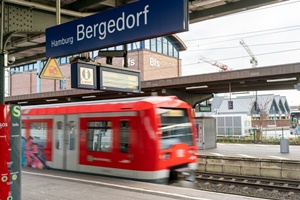Germany’s Deutsche Bahn, Siemens team up for driverless train
03 Nov 2021
German rail road operator Deutsche Bahn, has teamed up with Siemens to launch, what the two claims, the world’s first automated, driverless train, in the city of Hamburg.

German rail road operator Deutsche Bahn, has teamed up with Siemens to launch, what the two claims, the world’s first automated, driverless train, in the city of Hamburg.


HM Treasury selects HSBC Orion and Ashurst LLP for its Digital Gilt Instrument (DIGIT) pilot. A deep dive into the architecture, legal framework, and the shift toward near real-time settlement.

Cisco's new Silicon One G300 targets AI data center bottlenecks as networking becomes central to compute performance.

Intel and AMD server CPU shortages are hitting China as AI data center demand surges, pushing lead times to six months and driving prices higher.

India's Budget 2026-27 targets fiscal discipline with record capex as markets tumble, the rupee weakens and manufacturing struggles to regain momentum.

As AI server density surges in 2026, data centers face a new bottleneck deeper than chips — the massive water demand required for cooling next-generation infrastructure.

Airspace bans, sanctions and corridor risk are forcing airlines into costly detours in 2026, raising fuel burn, reducing aircraft utilisation and pushing airfares higher worldwide.

India’s data centre boom is turning into an AI arms race where power contracts, liquid cooling and fast commissioning decide the winners across Mumbai, Chennai and Hyderabad.

India’s refiners are rebalancing crude sourcing as Russian imports fell to a two-year low in December 2025, lifting OPEC’s share and raising geopolitical risk concerns.

Greenland-linked tariff threats have injected fresh uncertainty into transatlantic trade, triggering a risk-off shift in markets and reshaping global supply chain planning.